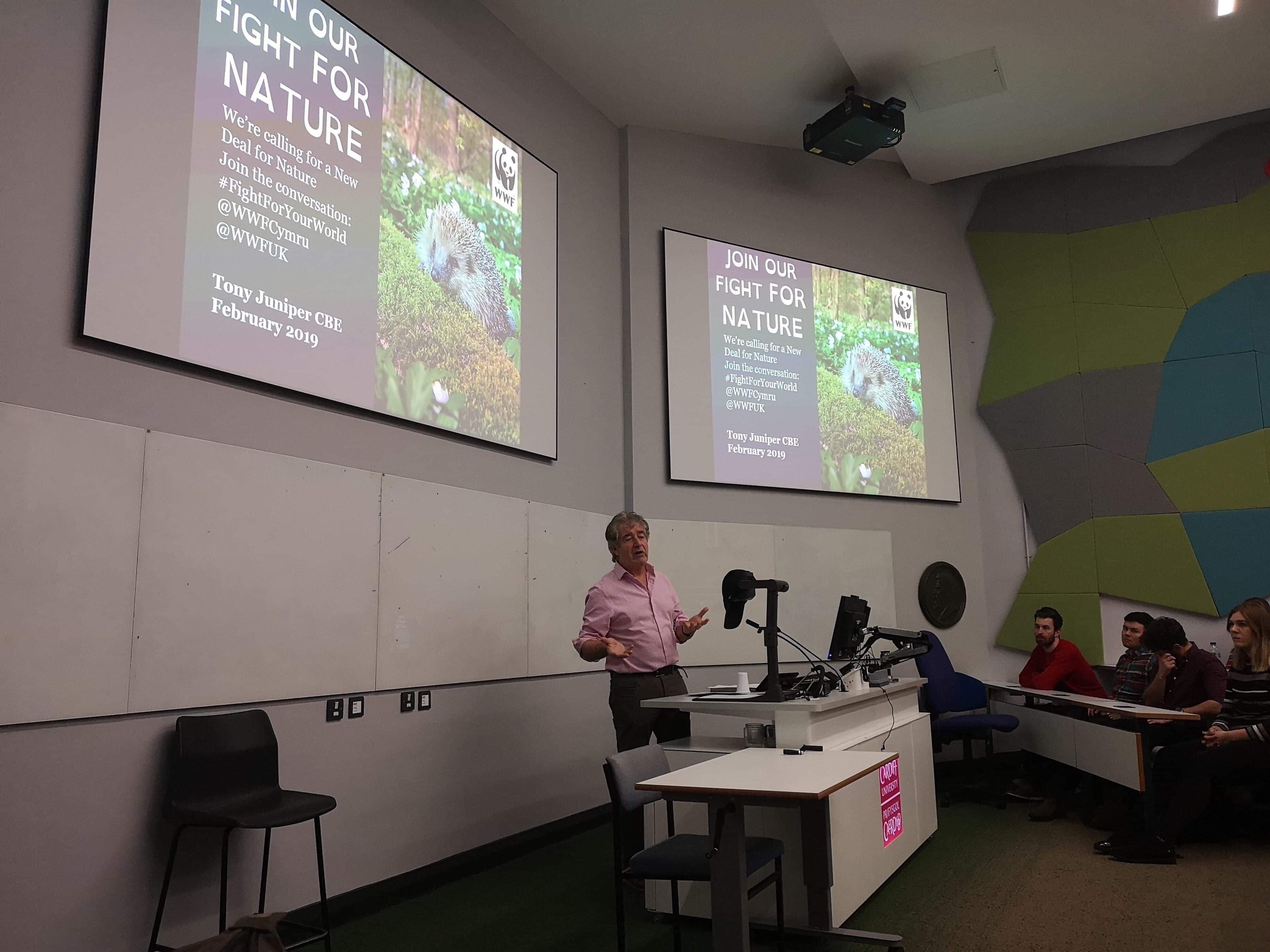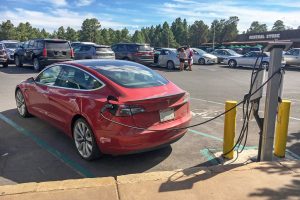By Suzannah Murphy
Through informing the audience of the aims and perspectives of the WWF, Tony Juniper discussed the impacts of environmental degradation, specifically, climate change, loss of biodiversity and species extinction.
The urgency to manifest a sustainable future has increased drastically since the Intergovernmental Panel on Climate Change (IPCC) 2018’s damning report, warning of the desperate strain on the planet’s climate and ecosystems following a preventable 1.5 degree Celsius rise in temperature.
The WWF’s agenda has followed suit in paving the pathway towards a greener future.
Despite highlighting vastly disastrous consequences of climate change, Juniper was quick to make aware of the reversibility of these impacts and the action we can all take. A key window of opportunity was identified through the current ongoing Brexit negotiations, whereby the WWF is campaigning to make sustainability a key part of post-Brexit legislation.
Furthermore, the UK is currently bidding to host the 2020 UN Climate Change summit, an international meeting aimed at setting emission-cutting commitments. Juniper pointed out the importance for environmental charities and the public to utilise this important moment in history to put pressure on the UK government to prioritise sustainability.
Both events have an opportunity to push Britain into being at the forefront for positive environmental action, which would lead the way for other countries across the globe to follow suit.
As consensus has shifted, whereby sustainable development is no longer regarded a hindrance and rather a key component to long term economic growth, Juniper argues that governments have less reason to oppose adoption of a greener policy.
This window of opportunity, along with the window of reversibility, is quickly approaching deeming our role as active citizens crucial.
In response to a question about things we can do as individuals, Tony said “what about vegan meals two days a week.”
In response to using social media as a tool for campaigning, it offers “an opportunity if we use it right” and “keep it true”
In addition, we can increase our impact through engaging in environmental groups and charities, such as WWF and local grass roots movements, signing e-petitions calling for sustainable policy as well as raising awareness.
He ended the talk by saying, “In the end, if we do manage to solve these big problems, it’s because people cared.” Juniper underlined the impactful role of writing to MPs and AMs to express concerns regarding environmental degradation. He argued that citizens have the power to demonstrate their opinions, in turn impacting governmental agenda and formulating meaningful policy.
This is an important time for the environment, whether it’s enjoying and discussing the upcoming WWF-Netflix collaboration, ‘Our Planet’ starring David Attenborough, or becoming involved through organisations or writing to politicians. The talk emphasises that, collectively, we can make a difference.





Add Comment